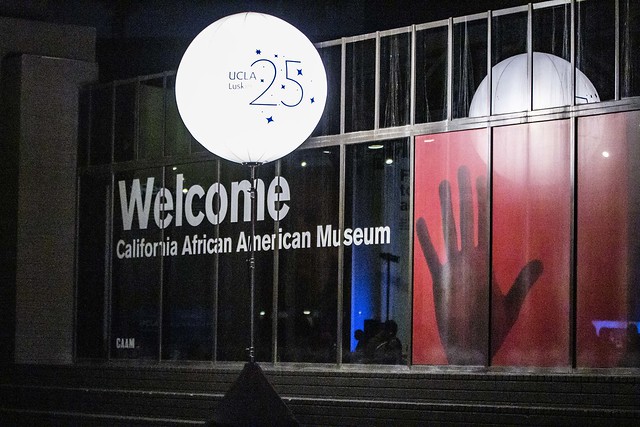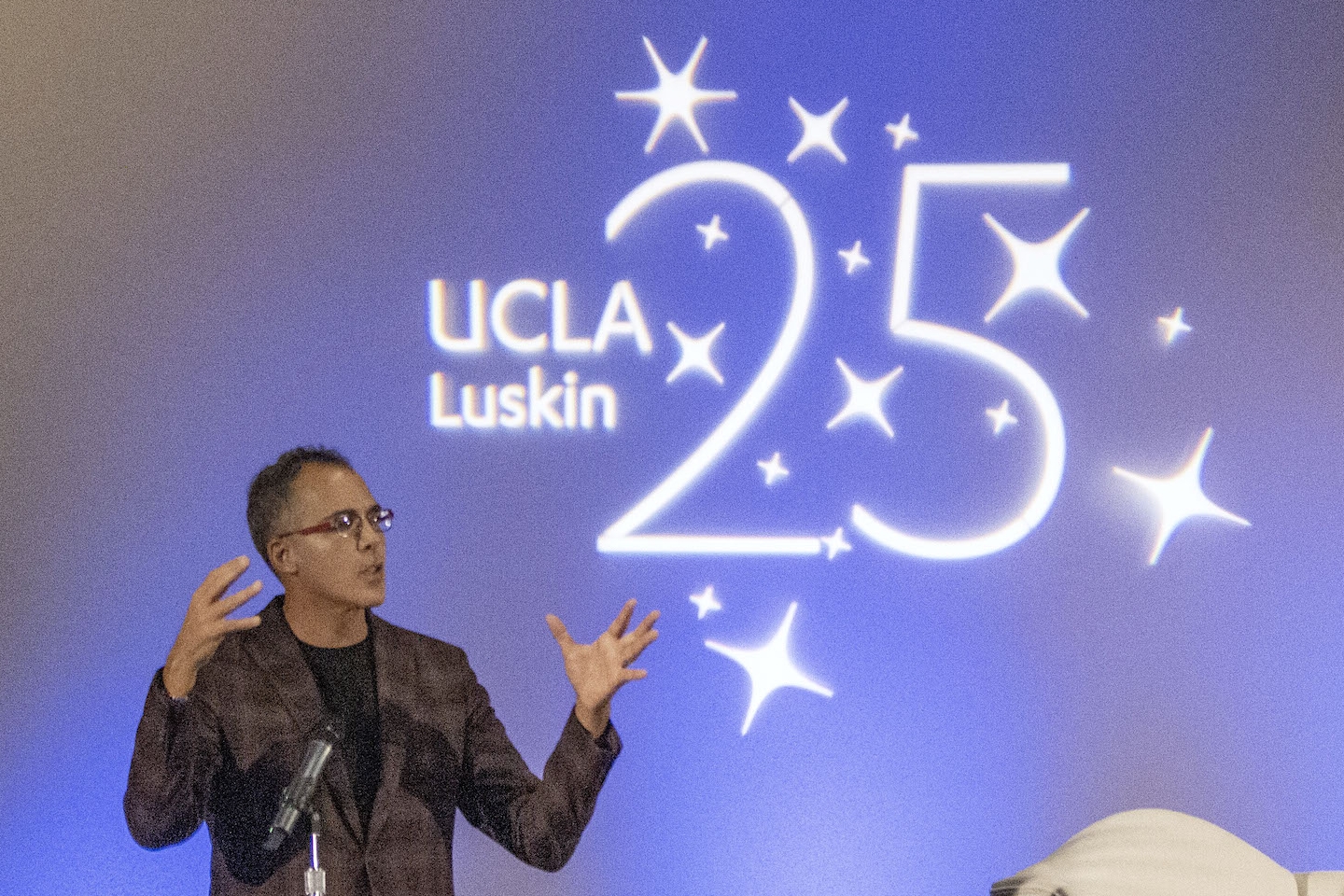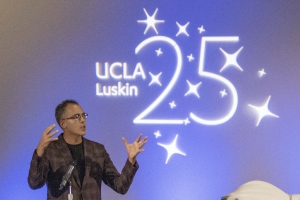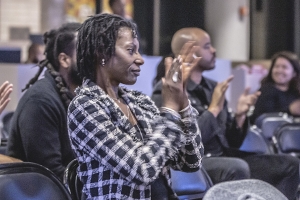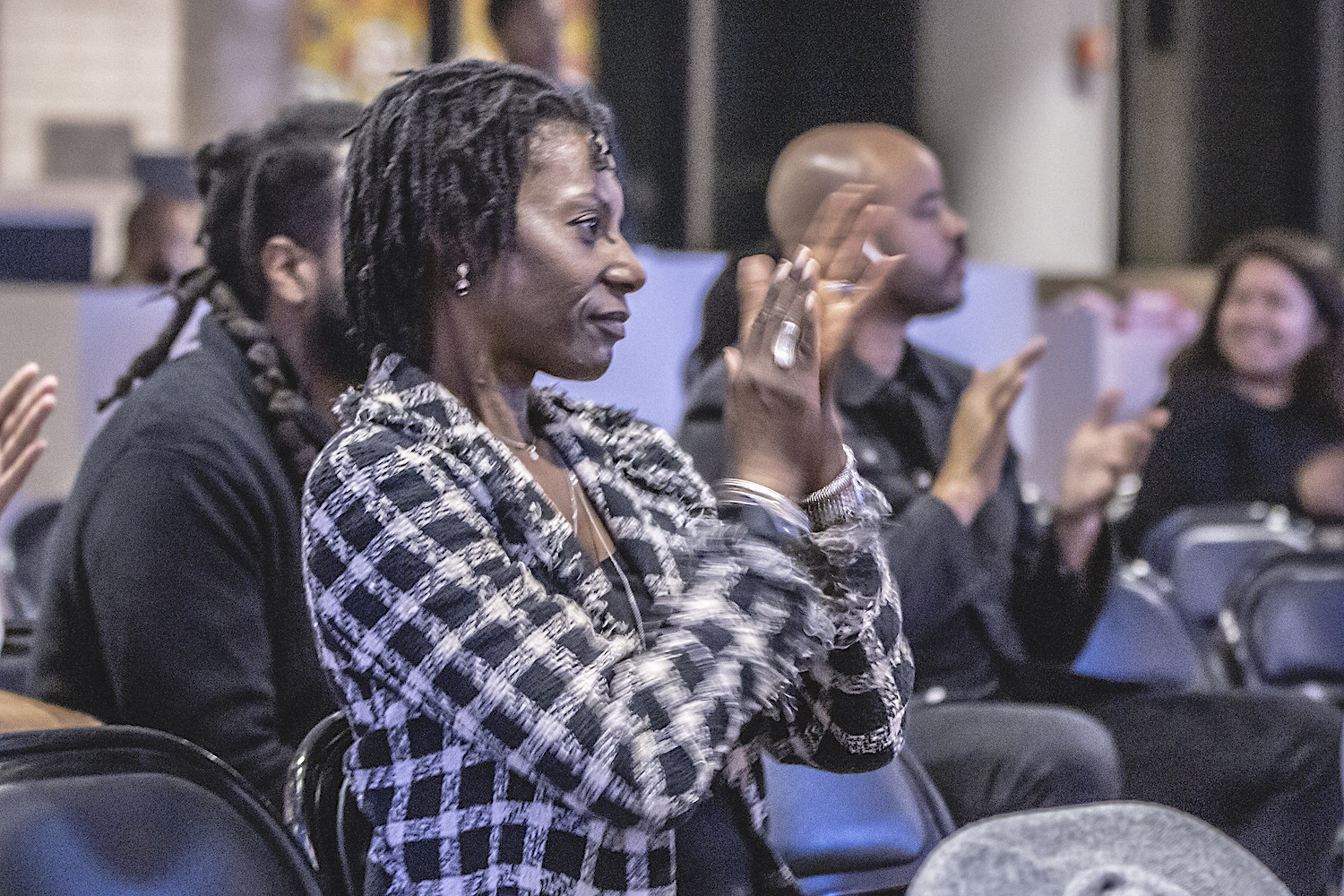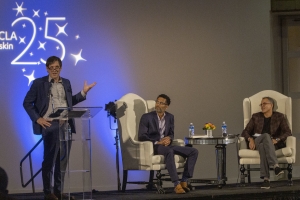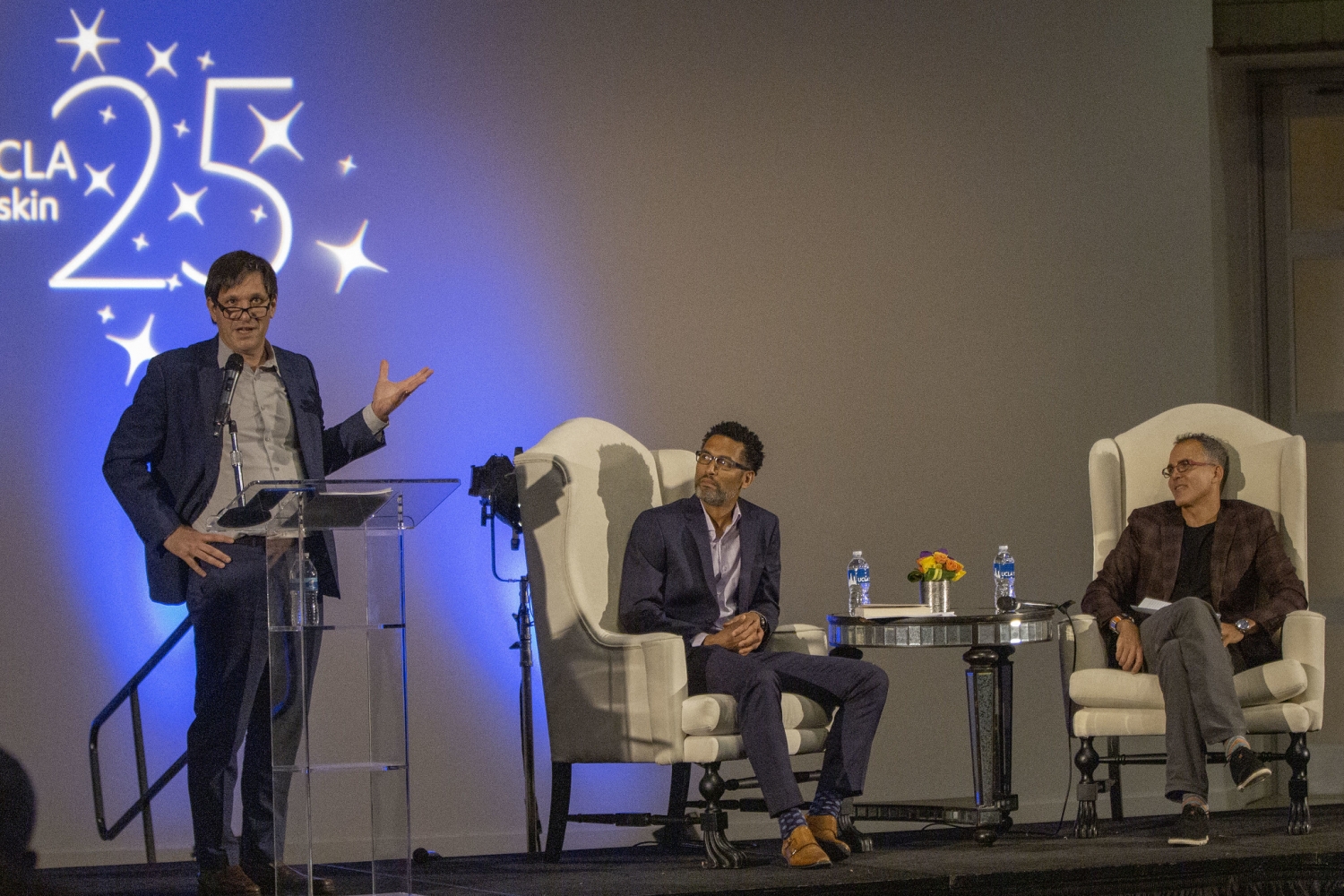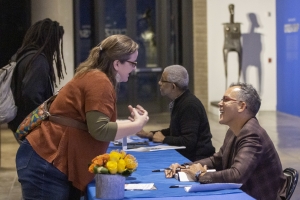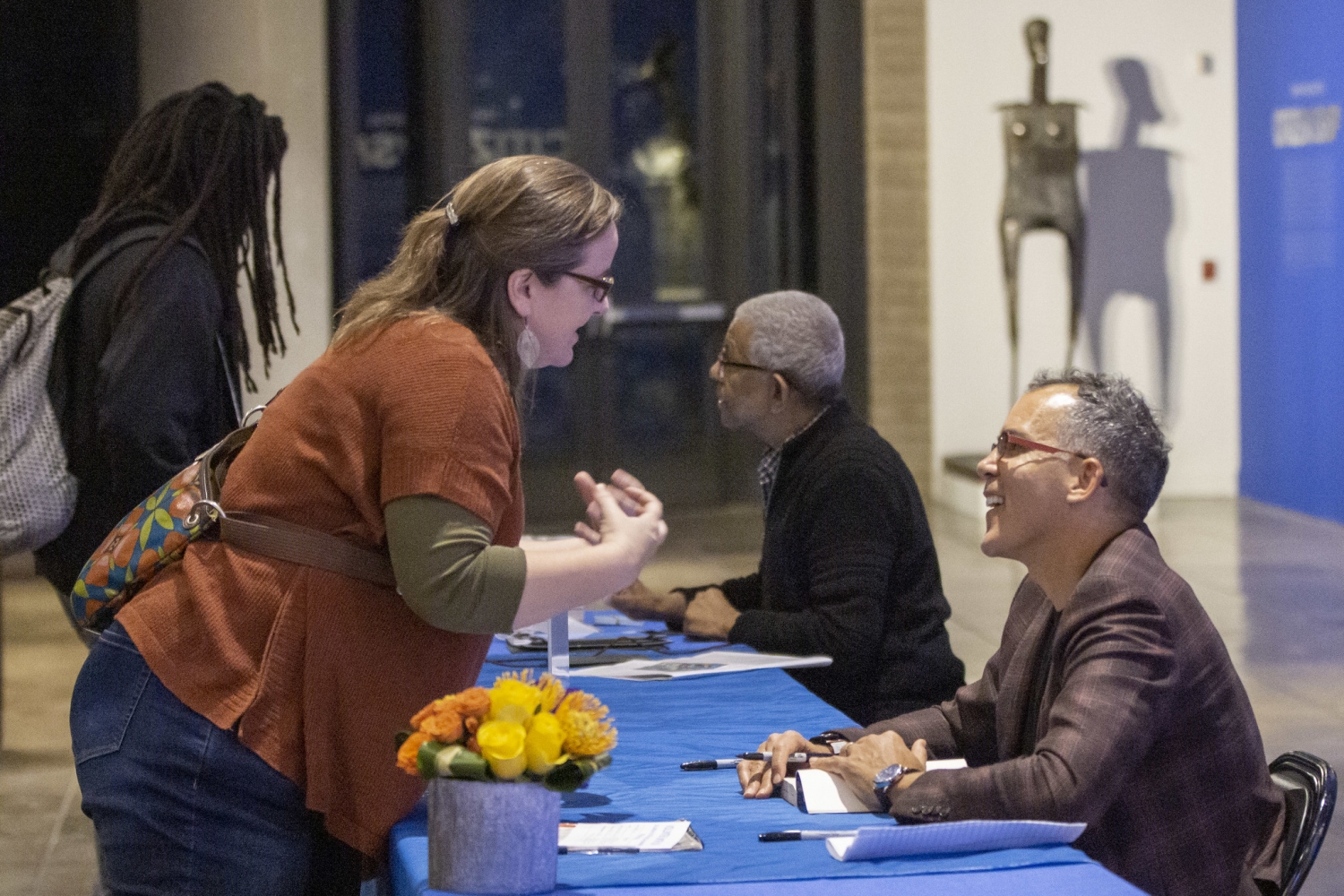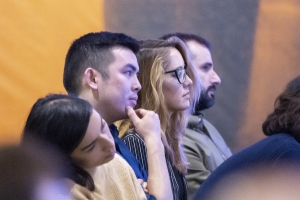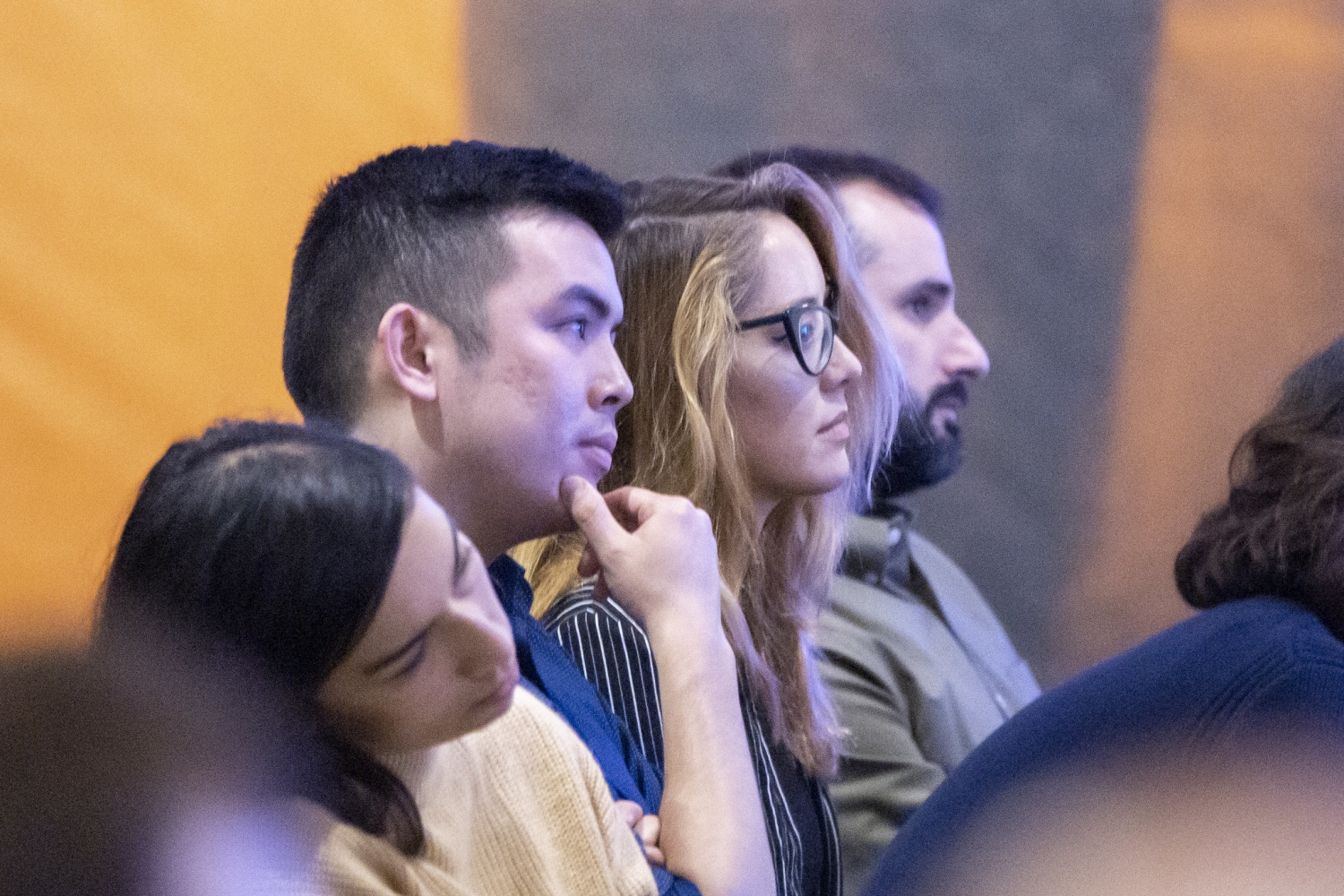By Mary Braswell
For more than three decades, the United States has imprisoned its people at a higher rate than any other nation, so Yale University law professor James Forman Jr. understands how individuals might feel powerless to change that reality.
“When we look at something as awful as the largest prison system in the world, it can be easy to think about it as somebody else’s problem to solve,” Forman said during a Nov. 7 UCLA Luskin Lecture at the California African American Museum. “But we all have to think about what we can do individually and then collectively in response.”
The Pulitzer-Prize-winning author, former public defender and co-founder of an alternative school for incarcerated youth shared insights into the complicated evolution of U.S. criminal justice over the last half-century. Key turning points came in the 1960s and 1980s, when heroin and crack epidemics devastated communities of color and led to an era of “warrior policing,” he said.
Forman urged the audience to take tangible steps to turn the tide. Vote. Don’t skip out on jury duty. Find the time and energy to work for a cause close to your heart.
His appearance as part of the Meyer and Renee Luskin Lecture Series wove historical research with stories of his childhood as the son of civil rights pioneers, an interracial couple at a time when such marriages were illegal in much of the country.
“The notion that we would be critical or skeptical of government authority that was purporting to act in the name of public safety but was actually harming people is something that I just grew up on,” Forman said.
He has spent much of his career investigating how the United States “earned the dishonor of being the world’s largest jailer.” Part of the answer, he found, lies in grave missteps by African American leaders with the best of intentions — the subject of his acclaimed 2017 book, “Locking Up Our Own: Crime and Punishment in Black America.”
Forman found that African Americans who came to power during the drug wars of decades past did not have adequate resources to protect their communities and became over-reliant on police, prosecutors and aggressive tactics.
“We were passing the same laws, the same stop-and-frisk, the same mandatory minimums, the same school-to-prison pipeline. And we were getting the same results,” he said.
Then and now, actions of officials at the local level have enduring consequences, he said.
“It’s crucial that we look at the small steps, the hidden steps, the often invisible steps, some of them made by well-intentioned people,” he said. “Those individual decisions are the bricks that collectively have built the prison nation that America has become.”
Mass incarceration is fundamentally a local issue, Forman said, noting that 88 percent of prisoners in the country are in state, county and local prisons and jails.
“California and Texas together, just two states, have more people incarcerated than the entire federal government,” he said. “Los Angeles County all by itself is responsible for one-third of the people who are incarcerated in the state of California.
“So where we sit right now, this is ground zero in the fight against mass incarceration because this is one of the most incarcerated counties in one of the most incarcerated states in the most incarcerated country in the world. So we have some work to do right here in Los Angeles.”
Forman called on the audience to turn out for March elections for Los Angeles County district attorney, pointing to a trend he has seen over the last five years: In city after city, a new generation of progressive prosecutors has been voted into office, he said.
And he urged those present to understand their own power to bring about change. “For most of us we need to start where we live, we need to start with what we love,” he said.
For Forman, that means eradicating the “education deserts” found inside the criminal justice system. In 1997, he helped launch the Maya Angelou Public Charter School, which is now housed inside Washington, D.C.,’s juvenile prison. More recently, he has offered a seminar in which 10 law students and 10 Connecticut inmates come together behind prison walls to study criminal justice, part of a program called the Inside-Out Prison Exchange.
His “outside students” from Yale and Quinnipiac universities are exposed to a corrections system they might never otherwise see. The benefits for “inside students” are borne out by research showing that recidivism goes down and employment goes up — and by their own testimonials.
One of Forman’s incarcerated students told him he valued the “feeling of mattering.”
The student, he recounted, said, “I liked the law and the policy that we learned in this class, I did. … But really what I liked most of all was that every week when I came to class and I entered the seminar circle, I knew that I was entering a space where I was treated like I was smart, where I was treated like I had something to say.”
Forman urged the Luskin Lecture audience to embrace their own ideas for creating “a justice system that deserves to have the word justice in the title.” By doing so, he said, “You will create a system that protects and heals and reforms and mends communities, without all this toxicity and brutality of our current system.”
Forman shared the stage with Michael Lens, assistant professor of public policy and urban planning, who led a conversation after the talk, and Professor Máximo Langer of UCLA Law, who offered closing comments. Langer is faculty director of the UCLA Criminal Justice Program, which co-sponsored the Luskin Lecture along with the university’s Ralph J. Bunche Center for African American Studies.
UCLA Luskin Dean Gary Segura welcomed the evening’s guests, noting that the Exposition Park venue was chosen to “get us out in the community, to address questions, issues, thoughts, ideas that are important considerations in matters of public concern … so that we might learn from one another.”
View photos from Forman’s lecture on Flickr.
